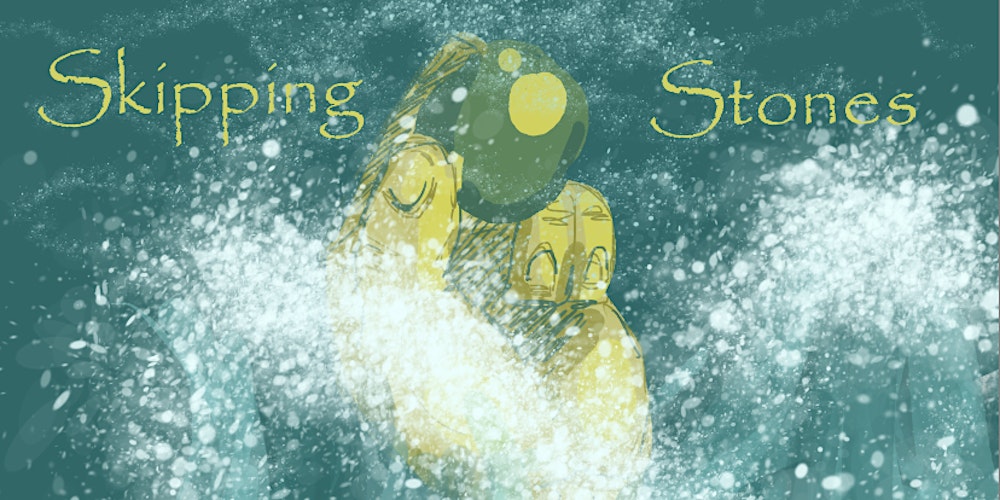Skipping Stones is a small production with a big emotional impact

Photo via Eventbrite.
Skipping Stones, “a paranormal surrealist play with a crushingly grounded story of grief, queer/autistic identity, found/broken family, and mental illness,” graced the stage of Paul Phillips Hall on Jan. 13 and 14, brought to life by the talented individuals of Undergrowth Theatre. This captivating production unraveled over two performances, and I was fortunate to witness this extraordinary play during its final show.
Entry was by donation, accepting both cash or e-transfers. Refreshments were also available. The venue was small, and the spectacle wasn’t extensively publicized as this was a small production, with a run time of 50 minutes. Nevertheless, the venue was overflowing with attendees.
Pluto McEachern-Hall, the multi-talented writer and director of Skipping Stones, began the evening with a territorial acknowledgement. Their words were touching, showcasing a deep understanding of how colonialism is embedded in everything we do, including language.
McEachern-Hall is only 20 and hasn’t had professional education in playwriting. As a writing student, I was interested to see what they would showcase. Despite evident nerves, they remained incredibly professional.
McEachern-Hall continued by explaining that the play delves into challenging themes such as death, grief, and trauma. They asked the public to approach the content with respect and reminded those who may become triggered throughout the play that they could take refuge in the washroom or the lobby. With that, the lights dimmed until we were surrounded by darkness and the show finally started.
Blue light and the sound of the sea enveloped the venue. After a few seconds, a loud crash interrupted the waves, followed by a phone ringing. The scene opens with a woman answering the phone, learning that Roland, her son, is missing. Roland took his kayak in the middle of a cold January night and hasn’t been seen since. He left for the sea without a life jacket.
The play cleverly uses blue lighting to indicate flashbacks. The sound and lighting cues flow naturally, showcasing the skill of Will Martinez, Muhammad M., and McEachern-Hall — the lighting, set, and sound designers.
The actors are also amazing. Raven Callejas, a Mexican actress, plays Roland’s mother Gwen. After the play I approached McEachern-Hall, to ask if Gwen was originally conceived as a Latin character, and they revealed that it wasn’t part of their initial creation. However, when they cast Raven, they allowed her to give the character her own spin, using Spanish in moments of crisis and high tension. The fact that Gwen is a Latin character, in my opinion, provides an extra layer of intersectionality to the story when other factors such as race and colonization come into discussion.
Rob Friesen is magnificent as Dave, Roland’s narrow-minded stepfather. His performance caused me anger and aversion, as his abusive character showcased a deeply broken and human representation of intolerance and insensitivity. Together in a scene with the star of the show, Colby Earnheart (Roland), they masterfully depict the complex dynamics between abuser and abused and the trauma surrounding them.
But my favorite performance of the night has to be Ez Sybom as Everett, Roland’s childhood friend. Several of Ez’ scenes moved me to tears, particularly the motif of skipping stones, which represent Everett and Gwen’s shared grief of the person they loved the most.
Skipping Stones, McEachern-Hall’s first long play, is a small-budget production showcasing the starting point of a promising playwright. McEachern-Hall is planning to move to Montreal to continue their pursuit of where there is a larger industry.
“No matter how good the actors or the set are, everything is a risk,” McEachern-Hall told me after the show. “The hardest part is to trust yourself.”
Unfortunately, there isn’t any news on any upcoming productions by McEachern-Hall. Still, I will be on the lookout for their name, as I’m sure they will produce great things in the future.







